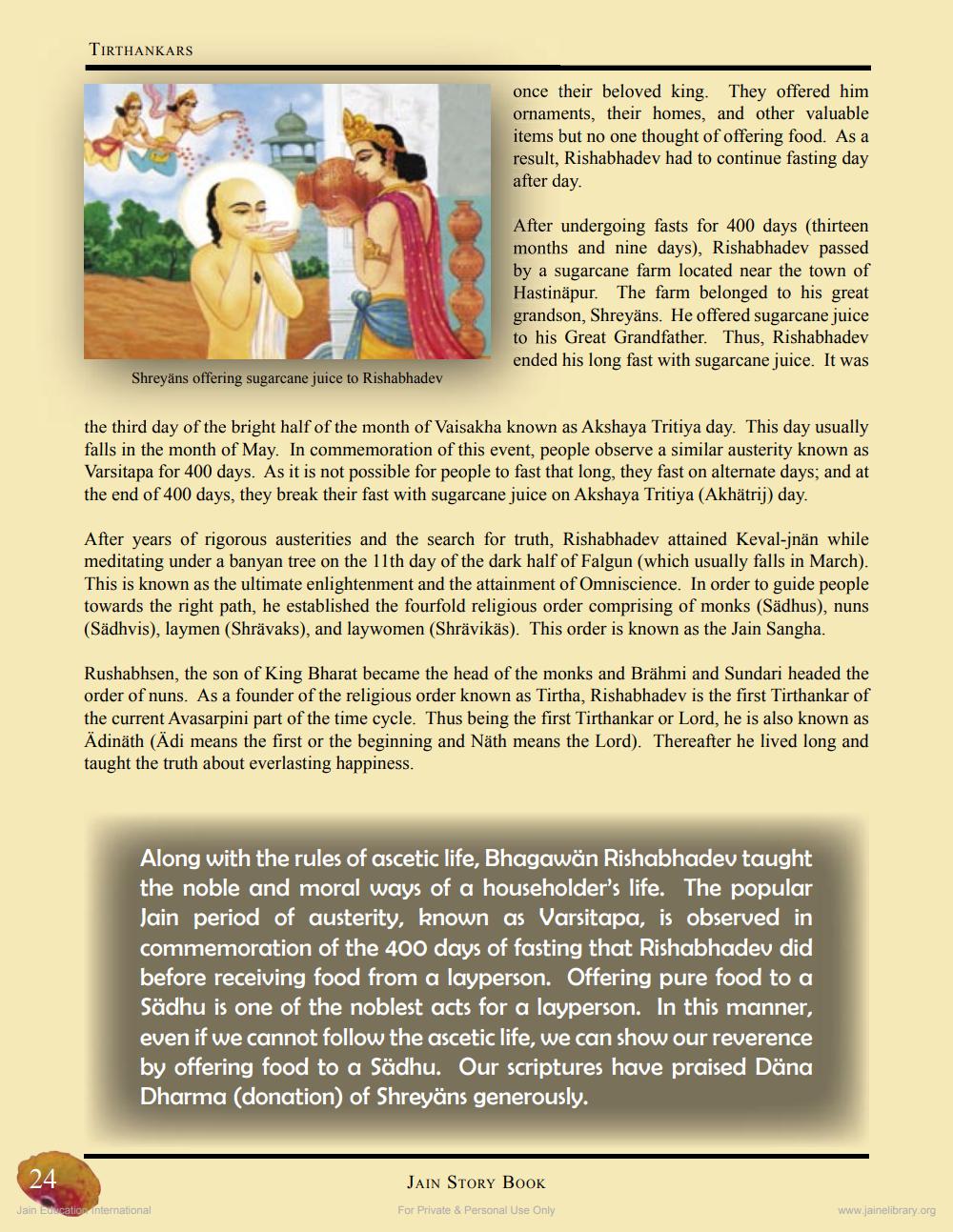________________ TIRTHANKARS once their beloved king. They offered him ornaments, their homes, and other valuable items but no one thought of offering food. As a result, Rishabhadev had to continue fasting day after day. After undergoing fasts for 400 days (thirteen months and nine days), Rishabhadev passed by a sugarcane farm located near the town of Hastinapur. The farm belonged to his great grandson, Shreyans. He offered sugarcane juice to his Great Grandfather. Thus, Rishabhadev ended his long fast with sugarcane juice. It was Shreyans offering sugarcane juice to Rishabhadev the third day of the bright half of the month of Vaisakha known as Akshaya Tritiya day. This day usually falls in the month of May. In commemoration of this event, people observe a similar austerity known as Varsitapa for 400 days. As it is not possible for people to fast that long, they fast on alternate days; and at the end of 400 days, they break their fast with sugarcane juice on Akshaya Tritiya (Akhatrij) day. After years of rigorous austerities and the search for truth, Rishabhadev attained Keval-jnan while meditating under a banyan tree on the 11th day of the dark half of Falgun (which usually falls in March). This is known as the ultimate enlightenment and the attainment of Omniscience. In order to guide people towards the right path, he established the fourfold religious order comprising of monks (Sadhus), nuns (Sadhvis), laymen (Shravaks), and laywomen (Shravikas). This order is known as the Jain Sangha. Rushabhsen, the son of King Bharat became the head of the monks and Brahmi and Sundari headed the order of nuns. As a founder of the religious order known as Tirtha, Rishabhadev is the first Tirthankar of the current Avasarpini part of the time cycle. Thus being the first Tirthankar or Lord, he is also known as Adinath (Adi means the first or the beginning and Nath means the Lord). Thereafter he lived long and taught the truth about everlasting happiness. Along with the rules of ascetic life, Bhagawan Rishabhadev taught the noble and moral ways of a householder's life. The popular Jain period of austerity, known as Varsitapa, is observed in commemoration of the 400 days of fasting that Rishabhadev did before receiving food from a layperson. Offering pure food to a Sadhu is one of the noblest acts for a layperson. In this manner, even if we cannot follow the ascetic life, we can show our reverence by offering food to a Sadhu. Our scriptures have praised Dana Dharma (donation) of Shreyans generously. 24 Jain STORY BOOK Jain Education international For Private & Personal Use Only www.jainelibrary.org




